Healthcare Solutions
-

Early experience with federal health coverage suggests how future Medicaid reforms may work
Proposed Medicaid reforms are similar to the capped federal financing system in place during the '50s and early '60s, when states generally reimbursed a much smaller proportion of health care for the needy. Read MoreFeb 1, 2017
-

Detecting inflammatory bowel disease during a colonoscopy
Vanderbilt researchers have developed a new optical sensor that can accurately detect different types of inflammatory bowel disease and can be easily integrated into routine colonoscopy exams. Read MoreFeb 1, 2017
-
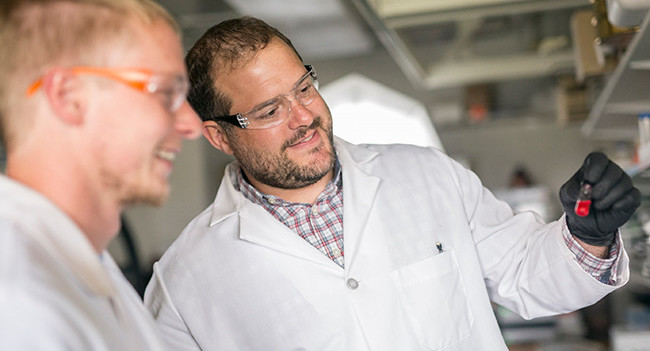
Vanderbilt biomedical engineer receives presidential award for advanced wound healing research
Biomedical engineer Craig Duvall has received a Presidential Early Career Award for Scientists and Engineers (PECASE) to support his research into advanced wound healing technology. Read MoreJan 31, 2017
-

Access to health care strengthens communities: Vanderbilt study
A new study shows that access to health insurance can help hold a community together socially, and lack of it can contribute to the fraying of neighborhood cohesion. The study, Beyond Health Effects? Examining the Social Consequences of Community Levels of Uninsurance Pre-ACA, published by the… Read MoreJan 16, 2017
-

Robert Wood Johnson Foundation funds study of health, economic effects of LGBT-related laws
A trans-institutional team of Vanderbilt social scientists and medical professionals will look at how laws affecting LGBT individuals and families affect their health and the economy. Read MoreDec 19, 2016
-

Research that ruled in 2016: Readers’ favorite stories
Artificial kidneys, gay-straight alliances and junkyard batteries captured readers' attention in 2016. Read MoreDec 16, 2016
-

The myth that healthy foods cost more may have a negative impact on consumer choices
The idea that healthy foods are universally more expensive drives consumer choices to a degree that it shouldn’t, according to a new Vanderbilt study. Read MoreDec 1, 2016
-
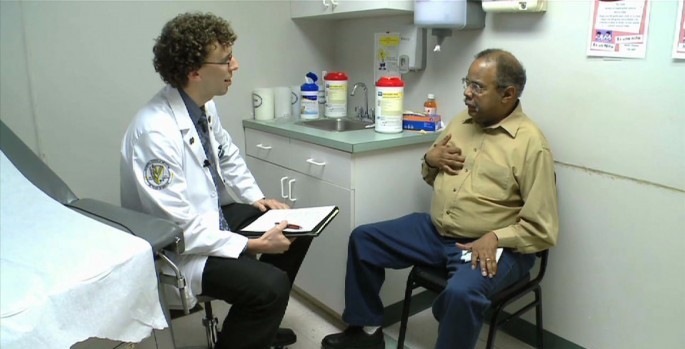
Unique premed program provides tools to understand social contexts for health
Seniors who completed the program were as likely as traditional pre-med students to be accepted into medical school. Read MoreNov 30, 2016
-

‘Origami’ rapid malaria test receives Grand Challenges Explorations grant
A novel "origami" rapid diagnostic test for malaria has received a $100,000 Grand Challenges Explorations grant from the Bill & Melinda Gates Foundation. Read MoreNov 15, 2016
-
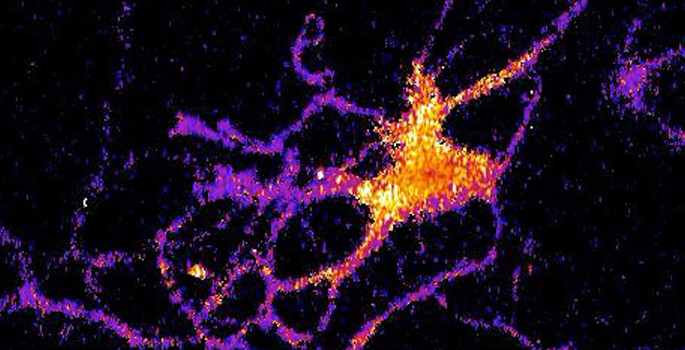
Bioluminescent sensor causes brain cells to glow in the dark
A team of Vanderbilt scientists have genetically modified luciferase, the enzyme that produces bioluminescence, so that it acts as an optical sensor that records activity in brain cells. Read MoreOct 27, 2016
-

DNA damage response protein
Vanderbilt researchers have determined that a previously uncharacterized protein responds to DNA replication stress and has an essential role in maintaining the integrity of the genome. Read MoreOct 21, 2016
-

Preparing for a return of pox
To prepare for the potential of a smallpox return, Vanderbilt researchers are isolating and studying naturally occurring antibodies from the blood of previously infected or immunized people. Read MoreOct 20, 2016
-

EGF receptor found to regulate macrophage inflammation in gut
Researchers at Vanderbilt University School of Medicine have uncovered a link between epidermal growth factor receptor (EGFR) signaling and the inflammatory response to bacterial infection in the gastrointestinal tract. Read MoreOct 13, 2016
-

Guidelines to help concussed students return to school
Tennessee is about to join a handful of states with “Return to Learn” guidelines that recommend how to help students who have suffered concussions ease back into the classroom. Read MoreOct 13, 2016
-

Antidepressants’ heart impact less than expected: study
A Vanderbilt University study published today in the Journal of Clinical Psychiatry may help patients prescribed higher doses of certain antidepressants feel better about attributed cardiac risks. Read MoreOct 13, 2016
-
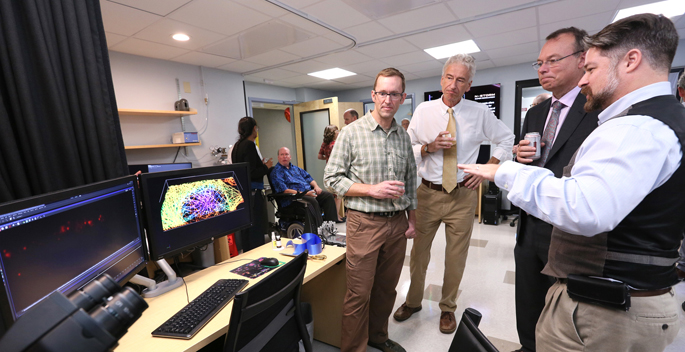
Nikon Center of Excellence for live-cell imaging makes debut
Officials of Vanderbilt University, Vanderbilt University Medical Center (VUMC) and Nikon Instruments Inc. last week celebrated the opening of the Vanderbilt Nikon Center of Excellence, which features state-of-the-art microscopy for live-cell imaging. Read MoreOct 13, 2016
-

Virus carrying DNA of black widow spider toxin discovered
DNA related to black widow spider toxin been discovered in a phage that infects the bacterial parasite Wolbachia. It is the first time animal-like DNA has been found in a bacterial virus. Read MoreOct 11, 2016
-
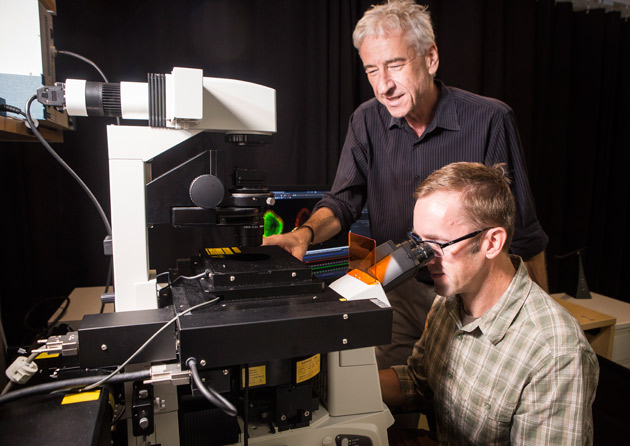
Basic science, extraordinary impact
The discoveries that can change the course of human health forever often begin in the tiniest places: in molecules and cells, at the most fundamental intersection of physics, chemistry and biology. Understanding how these cellular and molecular processes work is the focus of basic biomedical research at Vanderbilt. Read MoreOct 6, 2016
-

Studies aim to speed, track peripheral nerve recovery
Surgeons have limited tools to successfully repair and track the recovery of peripheral nerves that have been severely damaged as a result of a traumatic injury, but Vanderbilt investigators hope to change this through research studies recently funded with more than $3 million in grants from the Department of Defense and the National Institutes of Health. Read MoreOct 6, 2016
-

Vanderbilt scientists to lead chronic disease research initiative in Vietnam
Scientists in the Vanderbilt Epidemiology Center (VEC) and Vanderbilt-Ingram Cancer Center (VICC) have been awarded a grant to plan and develop a Regional Center of Research Excellence in non-communicable diseases in Vietnam. Read MoreOct 6, 2016